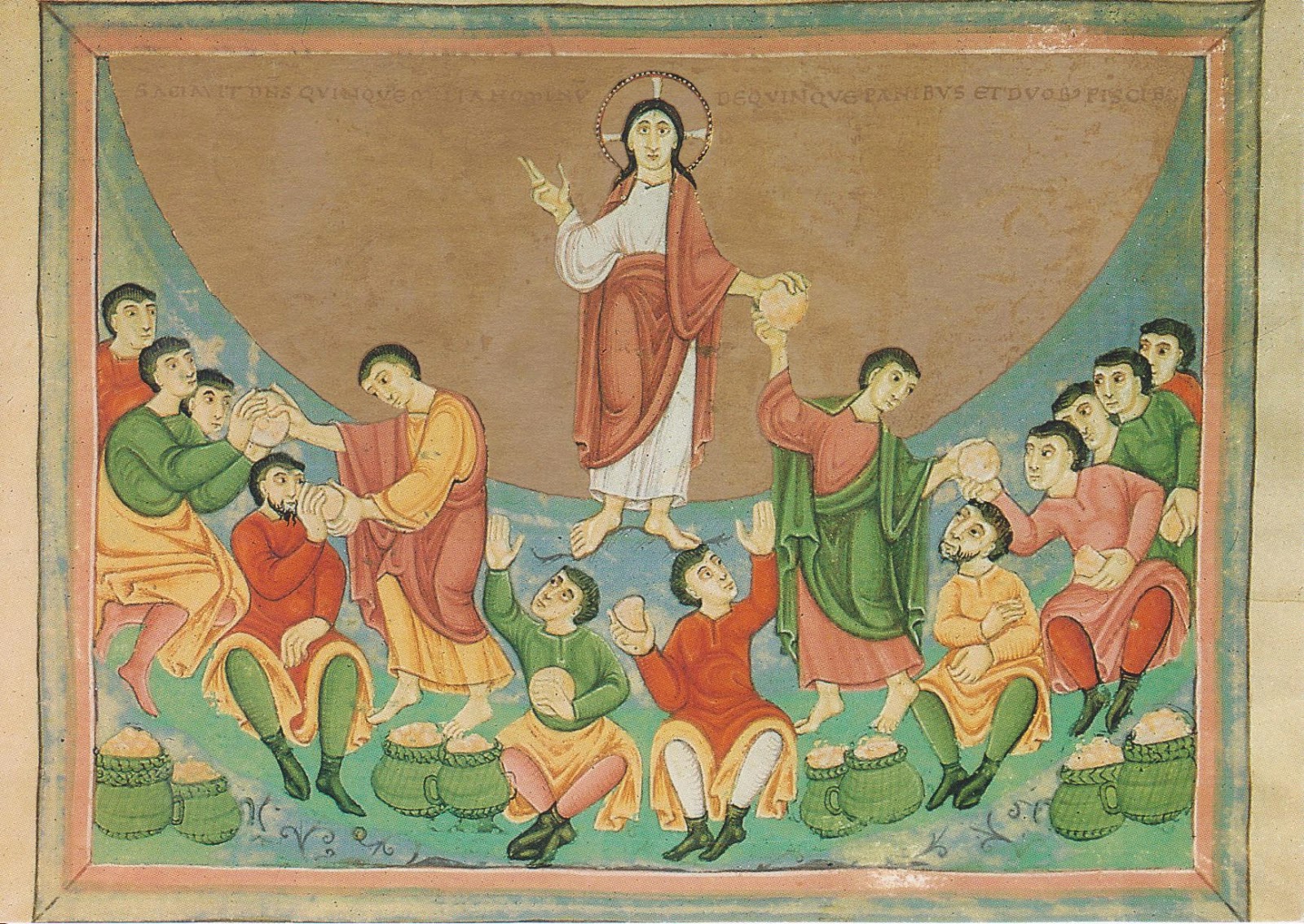2nd Passiontide
John 6:1–15
After
this, Jesus crossed to the far shore of the Sea of Galilee near Tiberius, and a
great crowd of people followed him because they had seen the signs of the
spirit, which he had performed on those who were ill.
Then Jesus went up on the mountain and sat down
there with his disciples. The Jewish Passover Feast was near.
 |
| Woloschina |
When Jesus raised his eyes to the world of the spirit and beheld how crowds of people were
coming toward him, he said to Philip, “Where shall we buy bread, that all these
people may eat?”
He asked this to test his understanding and
presence of mind, for he himself knew what he was going to do. Philip answered
him, “200 denarii [seven months wages] would not buy enough bread for them each
to have only a little.”
Another of his disciples, Andrew, Simon Peter’s
brother, spoke up: “A boy is here with five barley loaves and two small fish,
but what are these among so many?”
Jesus said, “Let the people sit down in groups.”
There was plenty of green grass in that place, and the men sat down, about five
thousand of them. Jesus then took the loaves, gave thanks, and gave to those
who were seated, likewise of the fish, as much as they wanted.
Now when they were satisfied, he said to his
disciples, “Gather up the fragments, that nothing be lost.” So, they gathered
them, and they filled twelve baskets with the fragments of the five barley
loaves left over by those who had eaten. Seeing the sign that he had done, the
people said, “Truly, this is the prophet who is to come into the world.”
When Jesus became aware that they intended to come
and make him king by force, he withdrew again to the mountain alone by himself.2nd Passiontide
March 22, 2020
John 6:1–15
 |
| Woloschina |
These difficult times are creating an odd opportunity:
instead of eating out, many are finding it necessary to cook at home. The
opportunity lies in the possibility of infusing the food we create with the
love that we feel for ourselves and our families. It is this element of love
that is the true nourishment for body and soul.
In today’s gospel reading Christ pointedly asks, ‘Where
shall we buy bread that all these people may eat?’ And Philip answers that
seven months’ wages would not be enough. I think Christ was trying to point to
the inadequacy of trying to nourish human bodies and souls with money alone.
To thrive, we need so much more. We desperately need the
soul mood of gratitude for that which we do have, however little it may seem. We
need to contribute to the atmosphere of generosity, of magnanimous giving, as
much as people want, as much as God wants.
In the Gospel, the people are seated on a grassy meadow. It
is evening. The stars come out. Longfellow said,
Silent, one by one,
in the infinite meadows of heavens,
blossomed the lovely stars,
the forget-me-nots of angels.
 And Emerson said: “If the stars should appear one night in a
thousand years, how would men believe and adore; and preserve for many
generations the remembrance of the city of
And Emerson said: “If the stars should appear one night in a
thousand years, how would men believe and adore; and preserve for many
generations the remembrance of the city of
The night sky as meadow and city. The twelve basketsful gathered
in the gospel were the leftover abundance of the star bread from the heavens, the
city of the Father.
With gratitude and with greatness of heart, we can access
what truly nourishes us: the life-giving love from the stars. For God’s essence
and the nature of His Son is overflowing abundance itself. But we must first
take our place in the greater, healthy order of things. We must open our hearts
in gratitude and generosity, toward God, toward our fellow human beings, and
toward the kingdoms of nature below us.
*Longfellow: Evangeline
** Emerson, Nature, Chapter 1






.jpg)